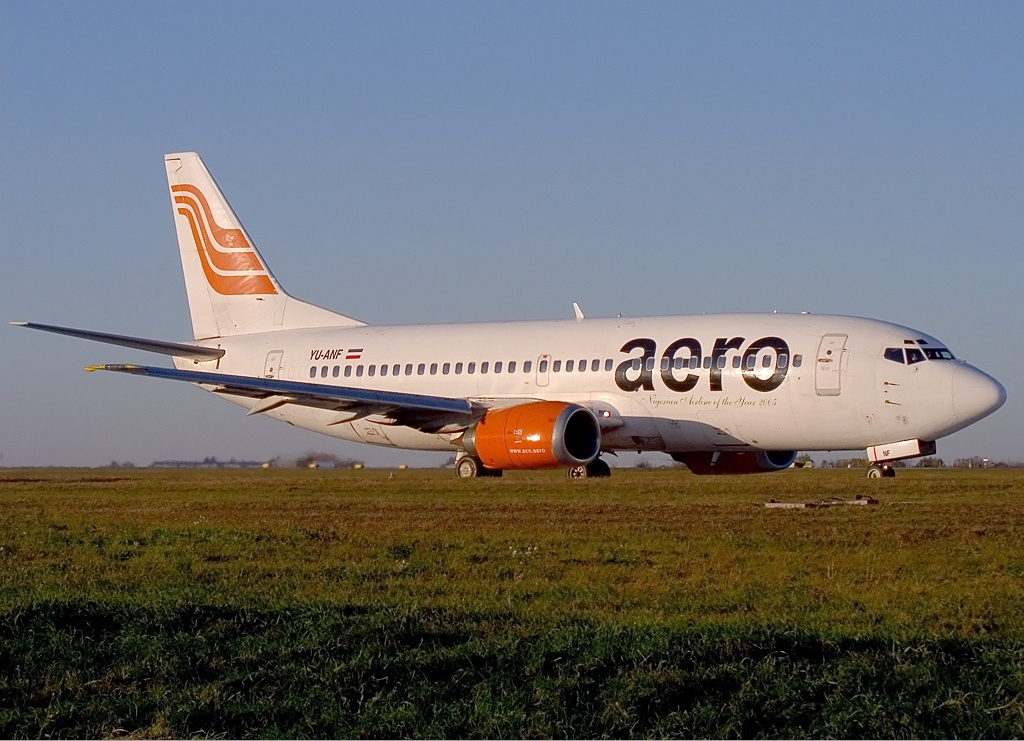- Ibru Family Pushing Hard to Buy Back Aero Contractors
The Ibru family has expressed its willingness to buy back Aero Contractors, which it lost to Asset Management Corporation of Nigeria (AMCON) owing to the airline’s huge indebtedness to banks.
A source with the aviation industry, who disclosed this said AMCON is willing to sell the airline to Ibru family or any other interested party at a good price.
The source also hinted that the federal government offered Arik Air, which was recently taken over by AMCON to two international airlines to buy, but the airlines declined.
Aero Contractors was initially owed by the Ibru family and CHC Helicopters of Canada. But CHC, some years ago, relinquished its stakes in the airline, leaving the Ibru family as sole owner.
The airline was taken over by AMCON when it could not offset the credit facility it secured from Oceanic Bank and later Ecobank, which absorbed the assets and liability of the defunct Oceanic bank.
Source inside Aero source that First Capital, which was appointed to oversee the sale of the airline hinted that about 18 companies from Nigeria and overseas have indicated interest to buy the airline. But the Ibru family is said to be making moves to buy back the airline and is willing to pay about 50 per cent of the total debts owed AMCON, which was put at about N35 billion.
“We have over 18 people that have indicated interest to buy Aero, but the Ibru family wants to settle. First Capital responsible for the sale said interested parties are coming from Nigeria and overseas and there are a lot of buyers. The Ibru family is willing to offer up to 50 percent of what the airline owed,” the source said.
The source said that right now AMCON has the controlling share of the airline and if the Ibru family after negotiation agrees to pay 50 percent of the debts; which means that it has merely offset part of the debts of the airline and this may not have anything to do with the shareholding, but with such payment, the shareholding could be renegotiated.
“If they pay there will be a restructure of the share capital, but AMCON will still own the capital but it will remove the receivership of the company, then the Ibru family can get an investor who will now buy AMCON shares. The initial debt (about N15 billion) owed AMCON was converted to shares; that is why the Corporation has controlling share, but the second debts amounts to about N20 billion and it is still there,” the source said.
Meanwhile, sources in aviation industry disclosed on Wednesday that the federal government had approached Ethiopia Airline and Turkish Airline to buy Arik Air but they declined.
Although we could not confirm why the two airlines declined the offer, sources said it may not be unconnected with the controversies surrounding the takeover of the airline.
Before the AMCON took over Arik Air last February, it was gathered that Ethiopia Airline would be giving the managing contract of the nation’s foremost airline, but Ethiopian Airlines Group CEO, Tewolde Gebremariam, told a local medium, The Reporter that the Nigerian government asked the help of his management to re-launch the national carrier of Nigeria (Arik).
“Recently, our team was in Nigeria because we have been requested by the government of Nigeria to support the reestablishment of their national airline”, he said.
Although he declined to disclose the details of the plan, saying the discussion was at an early stage, THISDAY gathered that the airline might be reluctant to acquiesce to the request of the federal government because “they don’t know who is in charge of Arik Air and who to deal with. Is it the Ministry of Transport or AMCON?”
Spokesman of AMCON Jude Nwauzor however said that the Corporation is willing to sell Aero to anyone willing to offer good price for the airline.
He said AMCON has spent money and it is still spending money on running cost to ensure the airline continues to operate.
“We are willing to sell Aero. We have been spending money on running cost of the airline; so if anybody offers us good money, we will sell it. We know that if Aero and Arik sell all their assets, they won’t be able to pay AMCON what it has spent on the two airlines,” Nwauzor said. Nwauzor however said he was not aware that anybody has indicated interest to buy either Aero or Arik.

 Naira4 weeks ago
Naira4 weeks ago


 Naira4 weeks ago
Naira4 weeks ago




 Naira4 weeks ago
Naira4 weeks ago




 Naira3 weeks ago
Naira3 weeks ago


 News4 weeks ago
News4 weeks ago
 Travel4 weeks ago
Travel4 weeks ago




 Naira3 weeks ago
Naira3 weeks ago


 Jobs3 weeks ago
Jobs3 weeks ago






















